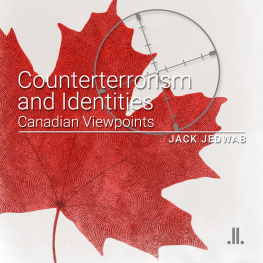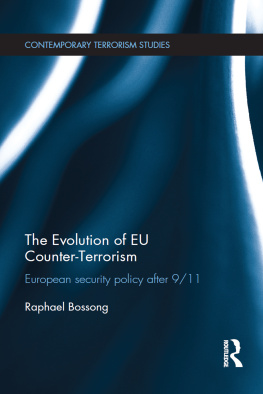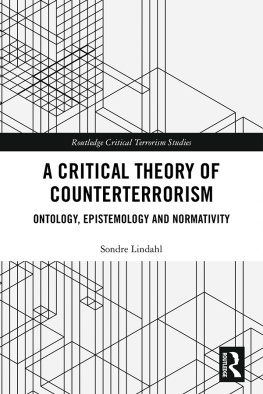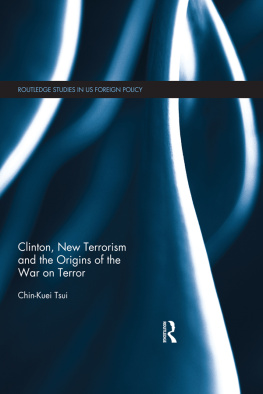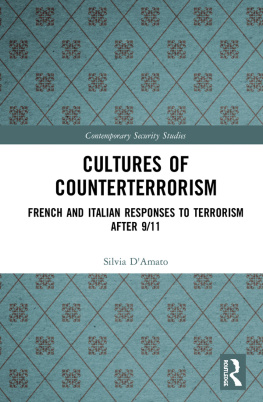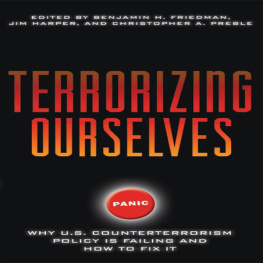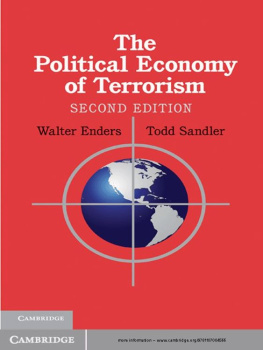COUNTERTERRORISM AND IDENTITIES
COUNTERTERRORISM AND IDENTITIES
Canadian Viewpoints
JACK JEDWAB
Copyright 2015 Jack Jedwab and the Association of Canadian Publishers
All rights reserved. No part of this book may be reproduced, for any reason or by any means without permission in writing from the publisher.
Cover and book design: Paula Provost
Printed and bound in Canada.
Library and Archives Canada Cataloguing in Publication
Jedwab, Jack, 1958-, author
Counterterrorism and identities : Canadian viewpoints / Jack Jedwab.
Includes bibliography and references. Issued in print and electronic formats.
ISBN 978-1-927535-86-8 ( paperback ).--ISBN 978-1-927535-87-5 ( epub ).
ISBN 978-1-927535-88-2 (mobi).--ISBN 978-1-927535-89-9 (pdf)
1. National security--Canada--Public opinion. 2. Terrorism--Public
opinion. 3. Terrorism--Prevention--Public opinion. 4. Canada--Defenses-
Public opinion. 5. Public opinion--Canada. I. Title.
UA600.J43 2015 355.033071 C2015-903424-8
C2015-903425-6
The publisher gratefully acknowledges the support of SODEC for its publishing program.
Linda Leith Publishing Inc.
P.O. Box 322, Victoria Station
Westmount QC H3Z 2V8
Canada
www.lindaleith.com
Table of Contents
CHAPTER 1
UNDERSTANDING TERRORISM AND ITS CAUSES
CHAPTER 2
IDENTITIES
CHAPTER 3
CANADIANS SENSE OF SECURITY
CHAPTER 4
COUNTERTERRORISM
CHAPTER 5
SECURITY, IDENTITY, AND RELIGIOUS PLURALISM
CHAPTER 6
SECURITY, CIVIL LIBERTIES, AND RESPONSIBILITIES
INTRODUCTION
The threat of terrorism cannot be understood in a vacuum. Increasingly, counterterrorism strategists recognize that circumstances and context matter when it comes to comprehending the conditions within which acts of terrorism occur. The way an analyst characterizes or defines the threat of terrorism frequently plays a critical role in determining the best response.
Achieving success in counterterrorism often depends on the degree of cooperation across government and community, and therefore requires effective commitment and participation from a wide range of actors. A high level of institutional trust on the part of an informed and alert public can be helpful. The public perception of the threat of terrorism and how it understands the issues underlying the threat are also useful in establishing optimal conditions for security officials as they choose a particular course of action. An ill-informed public with a high level of anxiety about security can be an impediment to effective counterterrorism.
Counterterrorism measures require that there be a delicate balance between what the informed public needs to know about a specific threat and what the public does not need to know. The degree of disclosure can be important in terms of the intelligence gathering that is so essential to effective counterterrorism. Insufficient disclosure about threats of terrorism may result in a breakdown in communication with the population, which may have a detrimental effect on public support for those responsible for the safety of society. The potential result will be lower perceived effectiveness in the fight against terrorism and a potential undercutting of the populations resilience in the aftermath of a terrorist incident.
Our identities matter. Counterterrorism strategists generally regard identities as important when establishing the profile of individuals or groups that commit acts of terrorism. Issues of identity play a larger role in understanding the context within which security concerns evolve. Effective counterterrorism frequently involves careful interaction between communities and those individuals tasked with protecting our security. This requires a good comprehension of the dynamics within which certain communities operate, as well as sensitivity to their concerns on the part of security officials. Establishing relationships of trust is very important. The ability of policing officials to work constructively with citizens is vital for success in the fight against counterterrorism.
To what extent are citizen anxieties about security and terrorism shaped by their identities ? On a related question, do our social ( i.e., age and gender ) and cultural identities ( i.e., ethnicity and religion ) affect the preferred strategies and desired methods in the fight against terrorism ? It is also important to consider the dominant markers of identity and the nature of identity-based tension and conflict. Nothing good can come from attaching stigmas to certain expressions of identity.
Exploring these and several related issues is a main objective of this book. Counterterrorism and Identities : Canadian Viewpoints seeks to improve our understanding of the societal context within which terrorist acts occur. With the support of Public Safety Canadas Kanishka Project, the Association for Canadian Studies ( ACS ) has compiled the largest bodies of survey data in the country on security, terrorism, and counterterrorism. This data offers insight into Canadian views on the basis of a wide range of demographic characteristics, including region of residence, age, gender, and religious identification.
This in-depth investigation looks at such considerations as Canadians definition of terrorism, their level of anxiety about the phenomenon, their perceptions of the effectiveness of government initiatives to combat terrorism, what they regard as the sources of terrorism, their views around how security threats affect inter-communal harmony, who they would turn to in the event of a terrorist threat, who they regard as best positioned to deal with the threat of terrorism, and their willingness to sacrifice civil liberties in the fight against terrorism.
On these and several related issues, the Association has since 2012 commissioned the firm Leger Marketing to conduct surveys that monitor changes in public opinion and establish benchmarks, allowing us to measure the significance of a particular shift. To take one example, we establish the average level of anxiety felt by Canadians over terrorism and how this anxiety level is affected by terrorist events. By correlating responses to different questions, we can look into Canadian views on a variety of key issues as seen by those Canadians that are most and least anxious about terrorism in Canada and elsewhere in the world. The ten surveys that are central to the analysis were conducted via Web panel and, as they are not randomized, are characterized as having a probabilistic or estimated margin of error. The national surveys have had a minimum number of 1500 respondents excluding oversamples. Two of the surveys included oversamples of Muslims and Jews, and these provide valuable insights into how these minorities assess issues associated with terrorism and counterterrorism.
As they develop short and long term policies and programs aimed at combating terrorism, policymakers, policing officials, and researchers can benefit from the information and analyses in this publication. While making myriad observations based on the data, we invite readers to identify and recommend any key questions that we have missed in assembling the data.
My thanks to the Kanishka Project of Public Safety Canada and particularly to Brett Kubicek for his unwavering commitment to research in this vital area. The opinions offered here are mine alone and do not reflect the views of Public Safety Canada. Finally, a special thanks to Ashley Manuel of the Association for Canadian Studies for her dedication and assistance with the publication.

